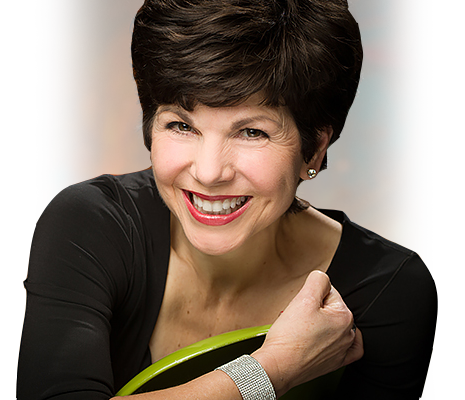
This is the third article in a series on the six core principles of relationship-based networking. This week I focused on the concept of “Helping Others – Asking for Help.” I consider this to be the spirit of networking. You need to be able to do both (ask for help and give help) to be effective in networking. I find many professionals (especially women) find it very easy and natural to help others, but asking for help is an entirely different matter. It can be a struggle and an embarrassment. In some cultures (including the USA), asking for help is seen as a sign of weakness. We are supposed to have all the answers, and to be highly independent, capable of handling anything ourselves. It wasn’t until I had ovarian cancer that I understood the power and necessity of asking others for help. Now seven years survived from cancer, I’m back to struggling with asking for help.
Then a remarkable thing happened. I reconnected with Joel Lagan, assistant vice president and head of sales support at Conning, based in Hartford, CT. Following a lunch and lead motivating seminar that I facilitated for Conning employees, Joel and I had a chance to have a conversation. He shared some very compelling insight on networking and relationship-building that his wife Shannon had offered him. I asked Joel if he could connect me with his wife so I could learn more. Perhaps I could feature her as a guest contributor in my blog series. I thought to myself, I would be helping her and giving her an opportunity. But truth be told, I really needed the help. I’m delighted to report that Shannon Everswick Lagan came through in abundance. I am so glad that I asked her for help!
Please enjoy her article and Shannon’s worldly perspective on the importance of relationships, and how the act of asking for help and taking the help offered is both a skill and a strength that all of us could learn to enjoy!
You’re getting warmer…
Are you resource rich, but relationship poor? asks guest blogger Shannon Everswick Lagan

In her book, Foreign to Familiar, Sarah A. Lanier articulates the concept of hot and cold climate cultures. In short, while each culture has its own nuance, cultures tend to fall into two basic divisions, relationship oriented and task oriented, distinguished by their natural climate.
I grew up in Zimbabwe, Africa. It’s warm and wonderful there, thus the culture is a warm climate culture. It’s relationship based. There’s a strong communal mindset and expectation that everyone will work together for the greater good of those around them. Success is measured by relationships and togetherness. You lean on each other, knowing that you’re moving forward together. Everyone around you is important because they are a person, and people make up community, the valued ‘currency’ in warm cultures.
People freely share their resources and skills with their friends and family. It’s expected that you’ll give, and so it’s not offensive when you take. The goal is to achieve comfort for the whole community, and because of consistent tending to each other’s needs, relationships run deep. You know each other because you do life with each other.
It was a bit of a shock to me as a young adult to move to the cold climate culture in Connecticut after graduation from university. If ever there was a task-oriented culture, this is it. I learned quickly that here, success is measured in what you achieve for yourself. It’s an individualistic culture, where responsible adults are those who can take care of themselves and usually it’s considered negative to lean on others for help. At the end of the day, you’re measured by what you can earn for yourself.
It’s taken a while for me to adjust and see the merits of this culture, but now I do. For instance, one of my favorite traits of this culture is that direct communication is a good thing rather than something that will offend everyone around you. However, I’d like to suggest that while we are resource rich because of our focus on hard work, we are relationship poor. You see, true relationships can’t happen when you’re never vulnerable and when you’re always the one helping, never the one taking. True relationships develop when a healthy balance of give and take is established.
I’ve noticed that people in Connecticut often foster networks over friendships. We know each others’ skill sets and jobs and how someone might help advance our career, but not our stories. It’s fairly common to interact with someone on a regular basis and have no idea who they are, where they live or if they’re going through a hard time. We are so engrossed in achieving our tasks and goals that we fail to see people right in front of us as more than a transaction.
Start thinking about people differently
I encourage you, maybe even challenge you, to start thinking about people differently. When we stop focusing on building our network one transaction at a time, and instead genuinely engage with whoever is in front of us, regardless of whether they’re a barista or a CEO, I think we’ll find that our networks grow far bigger than we expected because community is something powerful and people around us are hungry for it. I think we’re just trying to be responsible and play by the rules. But I’d like to suggest that this rule is made to be broken.
How to warm up your relationship skills:
- Instead of seeing asking for help as an inability to do something, think of it as problem solving. At the core of it, someone asks for help when they identify a problem that someone else would be able to solve better than them.
- Why are we so hesitant to ask for help? Asking for help is simply being wise enough to see a weak area in your life and smart enough to find someone to provide the solution.
- We live in a culture that teaches us that responsible adults are self-sufficient. In our attempts to live well, we inadvertently isolate ourselves. We spend our lives increasingly resource wealthy and relationship poor.
- Because we are task-oriented people, we often make the mistake of seeing those in front of us as another transaction. But they are not. People are not transactions.
- Refuse to live the lie that the only relationships worth fostering are the ones who will help you achieve your goals. We’re meant for more than that.
- Just remember, a good community is a powerful thing with endless resources in it to help you, but it’s made up of people who know each other, not people who leverage each other.
![]() About the guest writer: Shannon Everswick Lagan is a freelance writer who wants to prompt readers to think from a new angle. Formerly a meeting and conference planning professional, Shannon brings her organizational skills to her new role as Chief Operating Officer of her family. She manages three very young, high potential individuals, along with the co-founder of her family, her husband and partner, Joel Lagan. Born in Zimbabwe, Africa and educated in the United States, Shannon shares her worldly experiences and insights through her writing and interactions with people. To connect with Shannon, send her a LinkedIn invitation at https://www.linkedin.com/in/shannon-everswick-lagan-06253623/
About the guest writer: Shannon Everswick Lagan is a freelance writer who wants to prompt readers to think from a new angle. Formerly a meeting and conference planning professional, Shannon brings her organizational skills to her new role as Chief Operating Officer of her family. She manages three very young, high potential individuals, along with the co-founder of her family, her husband and partner, Joel Lagan. Born in Zimbabwe, Africa and educated in the United States, Shannon shares her worldly experiences and insights through her writing and interactions with people. To connect with Shannon, send her a LinkedIn invitation at https://www.linkedin.com/in/shannon-everswick-lagan-06253623/
- Read another great article by Shannon Everswick Lagan – https://www.linkedin.com/pulse/asking-help-mother-all-skills-shannon-everswick-lagan/
How can you be more effective in growing your network?

If you have comments or stories of your own to share, please do so on the Facebook page for my book, Networking Ahead– https://www.facebook.com/NetworkingAhead/
OR
Share this blog post on your LinkedIn feed– be sure to add your two cents about how networking has impacted your career, business, and life.

Check back in early June when I share my next blog on Core Principle#4 – Authentic – Be Fully Present

